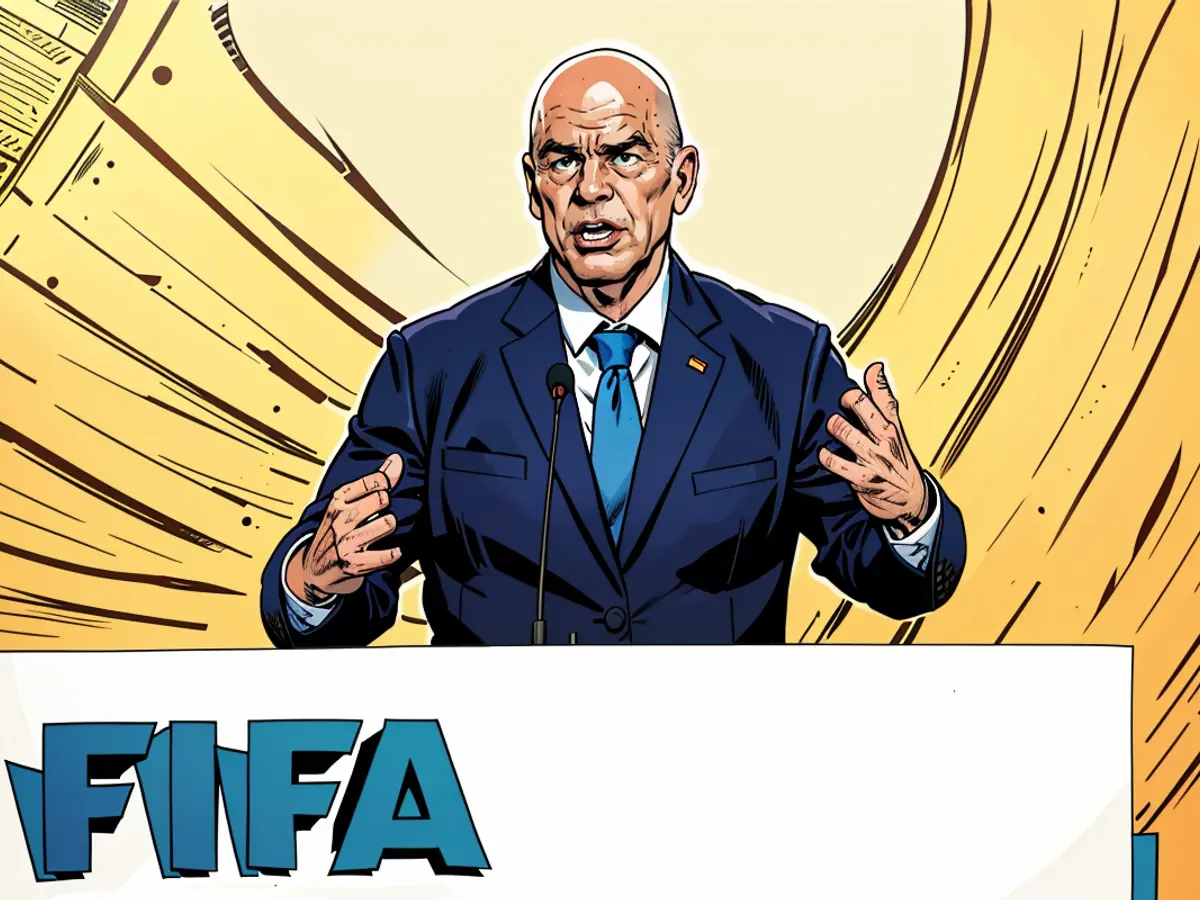Football organization files lawsuit against FIFA due to excessive match scheduling.
The English Professional Footballers' Association (PFA) and the French player union, Union Nationale des Footballeurs Professionnels, along with FIFPRO Europe, have filed a lawsuit against FIFA, claiming the world's football governing body is violating players' rights and potentially breaking EU competition laws. They claim that FIFA's overloaded and unworkable calendar has not been meaningfully negotiated and has been expanded without their consent.
FIFPRO President David Terrier said, "Since all attempts at dialogue have failed, it is now up to us to ensure that the fundamental rights of players are fully respected by taking the matter to the European courts and thus to the European Court of Justice (ECJ)." The unions have issues with next year's Club World Cup, scheduled to take place in the United States from mid-June to mid-July, as it could infringe on players' right to a yearly break.
They are also concerned about compulsory labor, worker health conditions, collective bargaining rights, and restricted competition and have requested the Brussels Court of Commerce to refer the case to the ECJ for a preliminary ruling on these matters. PFA President Maheta Molango said, "Players are not being listened to, and they want to see action. As their union, we have a duty to intervene and to enforce their legal rights as employees."
In May, FIFPRO and the World League Associations (WLA) had sent a letter to FIFA, warning them of potential legal action against the global football calendar, describing it as "now beyond saturation, to the point that national leagues are unable to properly organize their competitions, while players are being pushed beyond their limits with significant injury risks and impacts on their welfare."
Over the past few years, FIFA has been introducing significant changes to the football calendar. For example, they are planning the Club World Cup in the United States in 2025, with all three European club competitions set to increase from 32 to 36 teams. The group stage will be consolidated into a single 36-team league, where clubs in the Champions League and Europa League will play eight games in this phase. Clubs in the Conference League will still play six matches. Furthermore, clubs placed 1st-8th under the new format will qualify automatically for the knockout round. Clubs between 9th-24th will play a further two matches in a playoff stage to determine who advances to the round of 16.
FIFA President Gianni Infantino has defended the changes, saying that FIFA is funding football all over the world, and the money generated is distributed among 211 countries, unlike any other organization. In May, during the 74th FIFA Congress in Bangkok, Infantino justified the calendar, claiming that FIFA is "financing football all over the world." However, criticism of FIFA has been growing, with concerns about players' welfare in light of the increasing number of matches they are expected to play.
Research conducted by FIFPRO and Football Benchmark reveals that Real Madrid and Brazil star Vinícius Júnior, who is only 23 years old, has already played more than double the amount of matches that his compatriot and former Ballon d'Or winner Ronaldinho played before turning 24. Madrid teammate Jude Bellingham, just 19 years old, has played 18,486 minutes in his young career, spread across club and international competition. In contrast, England and Manchester United's Wayne Rooney had played 15,481 minutes before turning 21, and David Beckham had played almost five times fewer minutes than Bellingham by the same age. These statistics demonstrate how the demands on modern football players, driven by the expanding calendar, are leading to an increased risk of injuries and burnout.

Read also:
The English Premier League (EPL) is one of the leagues expressing concerns about the increase in matches due to FIFA's changes, as it could negatively impact player welfare and performance. The new Club World Cup format, set to take place in the United States, might result in players participating in more matches than they should, potentially leading to injuries and burnout.








